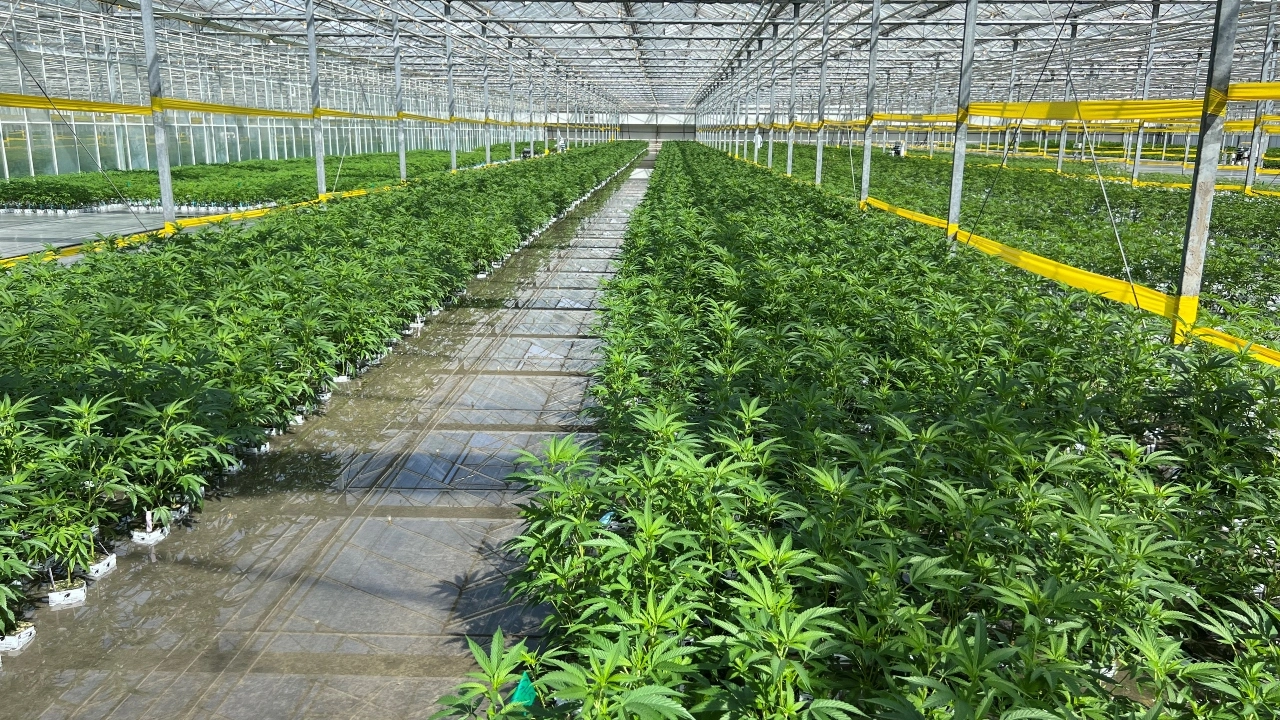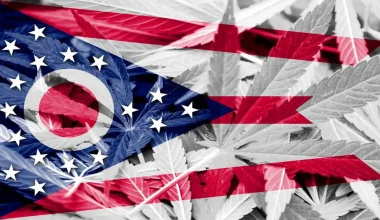You can’t try to grow a million pounds of cannabis without picking up a few enemies along the way.
The Trump Administration’s deadly July 10 immigration raids at California mega-cultivator Glass House Brands – the first law enforcement sweeps of their kind in the state in decades – triggered bad memories and put many operators on edge as they wondered what might be next.
But it also prompted displays of deep-seated resentment against Glass House, which some operators have publicly accused of illegal conduct.
Meanwhile, Glass House continues to produce more marijuana than many thought possible and sell it at prices many consider impossibly low.
Unanswered questions
It’s still not known exactly what prompted agents from Immigration and Customs Enforcement (ICE) and the Drug Enforcement Administration (DEA) clad in body armor and camouflage to show up at Glass House’s greenhouses in Camarillo and Carpinteria on July 10.
Authorities arrested more than 360 allegedly undocumented workers, Department of Homeland Security officials later announced. Agents also took into custody 14 children whom Trump Administration officials claimed were “rescued from potential forced labor.”
In what’s believed to be the first death stemming directly from an ICE raid, another worker died two days after falling from a roof during an attempt to escape arrest, his family later said.
No charges have been filed and no cannabis was seized.
Criminal search warrants signed by a judge authorizing the raid remain sealed, the Associated Press recently reported.
Separately, the state Department of Cannabis Control said that an investigation into the company is ongoing, though inspectors saw no underage workers during a May site visit.
At least some of Glass House’s operations are used to grow vegetables, and federal law allows children as young as 12 to work in agriculture.
The company has not commented since a July 11 statement in which it denied “knowingly” hiring undocumented workers and employing children.
But in the ensuing week, company critics, including the plaintiff in a since-dropped lawsuit that alleged Glass House was aware its cannabis was being shipped across state lines, have re-aired their grievances.
Million-pound greenhouses and $10 marijuana eighths
Glass House claims to be the biggest marijuana cultivator in California, the nation’s largest market.
It’s a title Glass House doesn’t appear to be at risk of losing.
In greenhouses equipped with LED grow lights, the company grew 153,000 pounds of marijuana biomass – trim that’s usually extracted into THC oil for vaporizers and edibles – in one quarter of 2024 alone, company CEO Kyle Kazan claimed on the company’s most recent earnings call.
Before the raids, it had ambitious expansion plans that could see it produce 1 million pounds of biomass annually, Kazan added.
It also operates retail stores, where it sells eighths for as little as $9.99 – tax included, Kazan said.
More recently, as cannabis operators nationwide continue to bemoan market share losses to hemp-derived THC competition, Kazan announced plans for Glass House to start a hemp line that it would market nationwide.
Glass House is still not profitable, with quarterly losses of $10 million, recent filings show.
However, many operators openly resent Glass House’s ability to grow that much marijuana and sell it for that little.
‘Worst kept secret’ in the marijuana industry
Industry advocates, such as the California Cannabis Industry Association and California Operators Association, either did not respond to MJBizDaily requests for comment or declined to comment on the record for this story.
Other outspoken industry figures have made their feelings known.
On July 17, a week after the raids, Catalyst Co. CEO Elliot Lewis posted a video of Glass House CEO Kyle Kazan giving a January 2024 deposition in the lawsuit.
On questioning, Kazan denied his company sold cannabis to Empire Cannabis Clubs, an unlicensed store based in New York City. Representatives of Empire Cannabis allegedly visited Glass House’s cultivation facilities.
Products bearing Glass House labels have been seen on illicit store shelves in New York, as Lewis and others have publicly alleged, though it’s never been clear how that product got there – or whether it was in fact legally grown product that was illegally diverted or a black-market counterfeit.
Lewis’ post prompted a response from Joseph Lusardi, vice chairman of marijuana multistate operator Curaleaf Holdings.
“Worst kept secret in the biz,” Lusardi wrote.
Neither Lewis nor Curaleaf immediately responded to a request for comment.
But the exchange is only one public example of what several California cannabis industry sources agreed is a current of thought in the industry: Raids or no raids, there’s little love lost for Glass House.
And it’s hard to disambiguate whether the source of the ire is jealousy for Glass House’s success or frustration over regulators’ inability to investigate any alleged wrongdoing.
Subscribe to the MJBiz Factbook
Exclusive industry data and analysis to help you make informed business decisions and avoid costly missteps. All the facts, none of the hype.
What you will get:
- Monthly and quarterly updates, with new data & insights
- Financial forecasts + capital investment trends
- State-by-state guide to regulations, taxes & market opportunities
- Annual survey of cannabis businesses
- Consumer insights
- And more!
Doomsday scenario
Worst of all, several observers told MJBizDaily, are the implications for the broader marijuana industry if the Trump Administration chooses to investigate the allegations of illicit conduct – and if those allegations are sustained.
The $32 billion U.S. marijuana industry remains federally illegal.
Limited guidance from the Justice Department – such as the “Cole Memo,” a four-page memo written in 2013 by an Obama-era deputy attorney general – has indicated that operators following state law are not a priority for federal prosecution.
Though Jeff Sessions, Trump’s first attorney general in his first term, rescinded the memo in 2018, federal authorities have not strayed from its guidelines.
That said, operators nationwide have made allegations of marijuana industry inversion and diversion in violation of state law.
In a doomsday scenario, that gives new DEA Administrator Terrance Cole, a known legalization skeptic, cause to crack down.
“I really feel like this is a make-or-break moment for legal cannabis,” said one observer, who noted that regulators have been “very aware” of allegations of diversion and “burner distributors” but “have done nothing to stop it.”
“It’s not secret California product is all over the country. Whether it’s coming from legal operators or just relabeled, something is going on.
“If (the federal government) feels like California is not enforcing the market, they could step in,” they added. “Unfortunately, Glass House could be made an example of.”
Chris Roberts can be reached at chris.roberts@mjbizdaily.com.
Medical Disclaimer:
The information provided in these blog posts is intended for general informational and educational purposes only. It is not a substitute for professional medical advice, diagnosis, or treatment. Always seek the advice of your physician or other qualified healthcare provider with any questions you may have regarding a medical condition. The use of any information provided in these blog posts is solely at your own risk. The authors and the website do not recommend or endorse any specific products, treatments, or procedures mentioned. Reliance on any information in these blog posts is solely at your own discretion.






